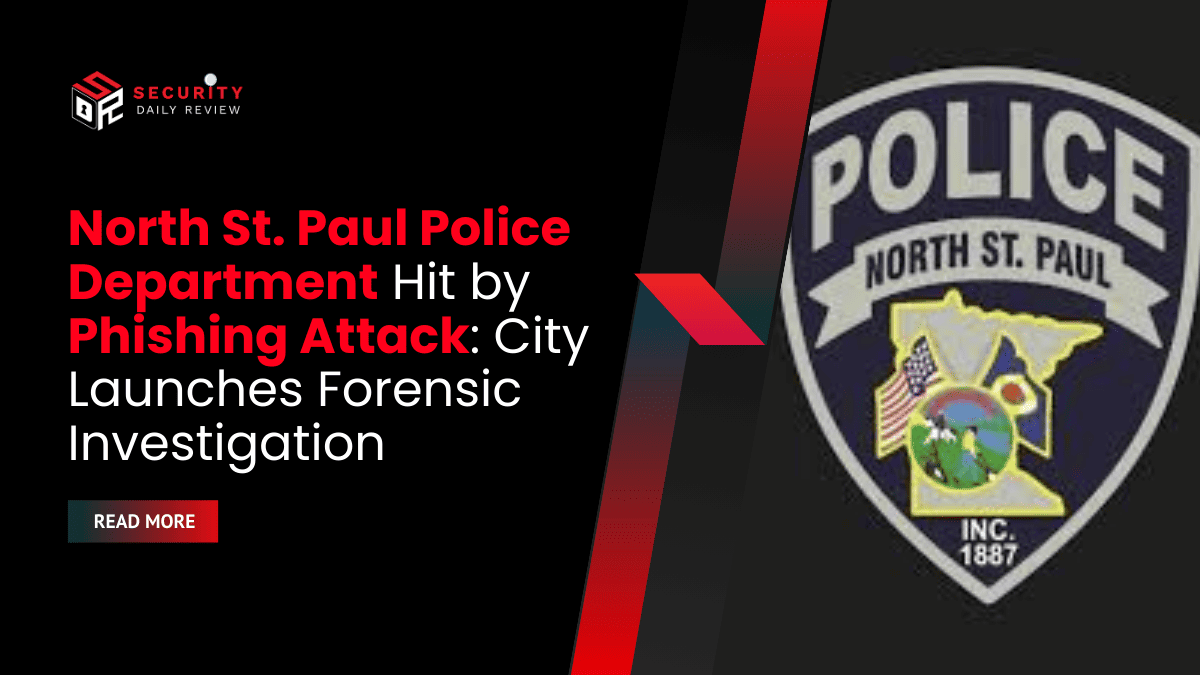A new cybersecurity breach has rocked the municipal systems of North St. Paul, underscoring the growing vulnerability of local governments to targeted cyber threats. On August 5, 2025, North St. Paul city officials confirmed that the city’s Police Department fell victim to a cyberattack that originated from a phishing email targeting a business email account. The incident, though reportedly contained quickly, prompted swift and serious action from city leadership, including the approval of a forensic investigation, collaboration with cybersecurity law firms, and coordination with state and federal partners.
A Single Phishing Email Led to the Police Department Breach
City spokeswoman Ava Griemert confirmed the cyberattack began with a phishing email directed at one employee’s work account. The unauthorized access was isolated to that single account, and the IT team responded promptly to contain and terminate the intrusion. Despite the apparent containment, the attack triggered immediate internal disruptions:
- Temporary loss of access to certain internal systems
- Degradation of some public-facing online services
However, city leadership emphasized that public safety and core infrastructure systems—including 911 and non-emergency lines—remained fully operational. Police Chief Raymond Rozales reassured the public that emergency services were unaffected and that law enforcement’s critical functions continued uninterrupted.
Emergency Meeting Leads to Forensic Investigation and Legal Response
In response to what city documentation called a “potentially ongoing cybersecurity concern,” the North St. Paul City Council convened an emergency meeting on Monday. Though the session lasted fewer than five minutes, it resulted in the unanimous approval of a formal agreement with the McDonald Hopkins law firm. McDonald Hopkins specializes in cybersecurity-related legal counsel and works in partnership with Arete Advisors, a firm known for digital forensics.
The decision to engage these cybersecurity specialists suggests a level of concern about both the nature and potential consequences of the attack. The forensic review, specifically aimed at investigating a “business email compromise,” will be led by Arete under legal supervision. While the investigation’s base cost is estimated to start at $5,000, a city council member indicated that North St. Paul carries insurance for such incidents, which is expected to cover expenses beyond the deductible.
Timing, Scale, and Parallels with Recent St. Paul Cyberattack
Although officials have dated the city’s initial contact with McDonald Hopkins as occurring in July, the exact date of the breach remains unclear. The city only publicly acknowledged the incident during the emergency meeting this week, following internal efforts to assess damage and mitigate further intrusion.
This incident comes just days after a separate cyberattack disrupted municipal operations in the nearby city of St. Paul. That attack forced many city services offline and was significant enough to require the intervention of the Minnesota National Guard. At present, it remains unconfirmed whether the North St. Paul attack is connected to the St. Paul breach.This rapid succession of cyber intrusions underscores a growing trend: municipal cybersecurity is increasingly under siege. While attackers previously focused on major corporations or federal systems, local governments—with their often less-resourced defenses and rich data repositories—are becoming high-value, low-resistance targets.
Coordinated Response Highlights Growing Sophistication in Municipal Recovery
City Manager Brian Frandle noted in a memo that, while data may have been compromised, city leadership moved quickly to prevent escalation. In addition to retaining legal and cybersecurity firms, North St. Paul is collaborating with a coalition of partners that includes:
- Local information security teams
- State-level cybersecurity authorities
- Federal response agencies
This coordinated approach reflects a maturing perspective on municipal cybersecurity preparedness. It also stands in contrast to earlier years when local governments frequently faced cyber incidents with limited playbooks and few response options.
“North St. Paul is taking this breach seriously and is committed to transparency, thorough investigation, and recovery,” said Frandle.
Key Lessons for Municipal Cybersecurity Planning
The North St. Paul police department breach, while relatively limited in scope, provides several critical takeaways for other municipalities:
- Phishing remains a top attack vector: A single successful phishing email can open the door to a broader compromise. This underscores the need for ongoing email security training and phishing simulation programs for all city employees.
- Rapid containment is possible with effective IT response: Thanks to fast action by the North St. Paul IT team, the breach was limited to a single account, preventing lateral movement and deeper infiltration.
- Legal and forensic partnerships are essential: Pre-established relationships with cybersecurity law firms and forensic advisors can dramatically accelerate incident response when minutes matter.
- Cyber insurance is crucial but must be understood: The city’s comment about coverage beyond their deductible serves as a reminder that cyber insurance must be reviewed regularly to ensure alignment with actual risks and response costs.
- Municipal systems remain vulnerable and must adapt: With two cities attacked in under a week, local governments must accept that they are not safe by obscurity. Risk assessments, incident response planning, and tabletop exercises should become standard operating procedure.
Though the situation in North St. Paul appears contained for now, the incident serves as a stark reminder: municipal cybersecurity is a frontline issue—not a backend concern. As attackers evolve, so must defenses, especially for agencies tasked with protecting public safety.









